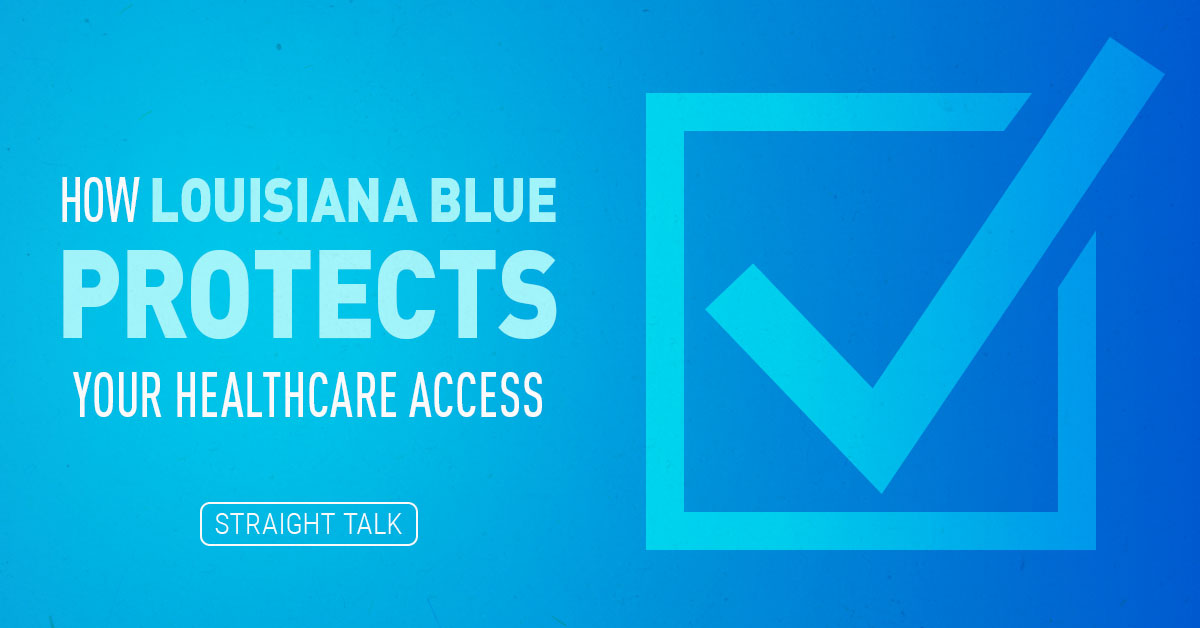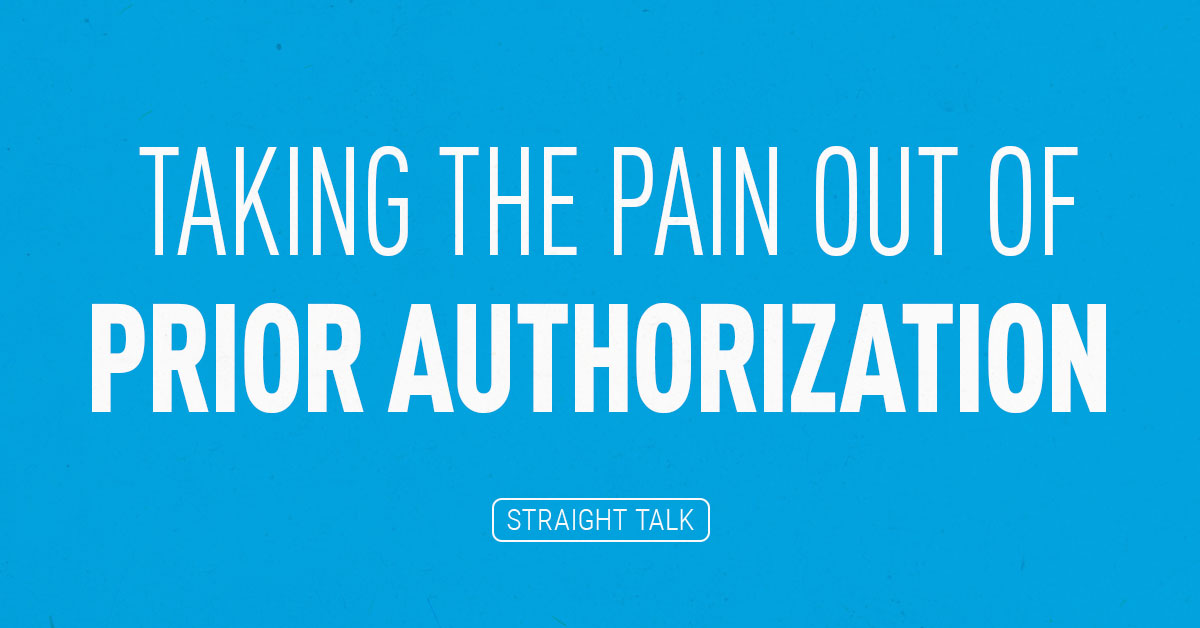In this blog, we spend a lot of time talking about the individual market (people who buy their own health insurance coverage and aren’t covered through an employer or government program.)
Why do we talk so much about them? Well, the individual market has undergone significant changes since the Affordable Care Act took effect, individuals are the main customers shopping on healthcare.gov (small business employees can shop there in certain circumstances, too), and it’s increasing healthcare costs for this share of the market that are primarily driving the losses Blue Cross and Blue Shield of Louisiana and other insurers are experiencing.
And yet, individuals are in the minority as far as health insurance coverage goes. Even after the Affordable Care Act, the majority of Americans who have health insurance coverage are getting it through a group, most likely their employer. The next-highest group are people who get healthcare through government programs, either Medicare (for people 65 or older or those who have certain disabilities), or Medicaid, a healthcare coverage program for low-income individuals.
(I)n general, and one reason we don’t talk more about them, is that our group insurance market is much more stable than the individual market. Why? Well, the group market requires documentation to offset a lot of the problems we are seeing in the individual market.
Individuals account for a little more than 16% of people with healthcare coverage. A flurry of recent reports, based on U.S. Census data and the National Health Interview Survey, from the National Center for Health Statistics, show that most of us are still getting healthcare on the job.
So, what’s going on with the group side of healthcare coverage? Well, in general, and one reason we don’t talk more about them, is that our group insurance market is much more stable than the individual market.
Why? Well, the group market requires documentation to offset a lot of the problems we are seeing in the individual market. For example, if you get insurance through your job and want to add your spouse, your employer is going to require you to provide a copy of your marriage certificate to prove it’s a legitimate need for coverage. Employers also have tighter rules around when or why people can enroll for coverage or change plans outside of their annual selection periods. That gets them around a lot of the problems we see with Special Enrollment Periods and other problems with the healthcare reform law that drive up costs in the individual market.
(B)usinesses today have a lot of questions about healthcare – what do we need to do to comply with the Affordable Care Act? … Blue Cross is going start bringing the answers directly to the businesses.
Because of these factors, when our group business has rate increases, they are much smaller (mostly single digits) than the rates in the individual market.
But, an increase is an increase, and with healthcare representing a larger and larger portion of an employer’s costs, it’s important that we (the payer) work together with businesses to see how we can get better quality outcomes for our mutual customers (their employees, our members) and keep costs in line.
And, businesses today have a lot of questions about healthcare – what do we need to do to comply with the Affordable Care Act? These patient-centered programs like Quality Blue are great and all, but how are they helping my bottom line? What’s the deal with all these rising drug costs? Does anyone have a worksite wellness program that actually shows ROI? What are my employees turning 65 supposed to do if they’re still working – do they need to sign up for Medicare?
All fair questions, some of which we’ve addressed here at Straight Talk. But, Blue Cross is going start bringing the answers directly to the businesses.
Next month, Blue Cross is teaming up with GNO, Inc., to host the Business to Business Forum on Healthcare Solutions (find us on social media with #B2BHealthForum) on Tuesday, Oct. 25, at the Hyatt Regency in New Orleans.
At this half-day event, we will bring business leaders and community organizations together with doctors, health plan executives, government officials, advocates and others to discuss what they can do to promote better health among employees and rein in costs.
Breakout session topics at this forum will include:
- Basic business compliance with the Affordable Care Act (by yours truly!)
- What’s the business value of patient-focused programs?
- Pharmacy costs and what businesses can do to address them
- Best practices of peers: Employee health and wellness programs (with Franck Labiche of Laitram)
- How to implement a worksite wellness program
- Medicare education: What employees turning 65 should know
- Healthcare priorities for the state (with Louisiana Department of Health Secretary Dr. Rebekah Gee)
Interested? Visit www.bcbsla.com/B2BHealthForum and register today. There is no cost to attend this event – it is a complimentary service from Blue Cross and GNO, Inc. A full agenda for this event is online at the registration site.
While we are starting out in New Orleans, we plan to have similar events in other areas of the state in early 2017.
I hope this event – kind of a “Straight Talk Live” – will be of interest to several of you and that you’ll be able to join us on Oct. 25.





Leave a Reply